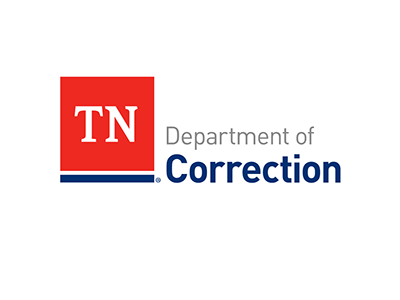Rep. Mike Sparks Champions Student Mentorship and Mental Health with New Resolutions Promoting Mentorship and addressing the Rising Fatherless Rate
“Declining mental health and broken families pose a serious threat to the well-being and future success of Tennessee children,” Sparks said. “Positive male role models and less time online are ways to ensure students across the state have access to opportunities and skill sets that will help them succeed. I’m proud to advocate for children, and I thank my colleagues for supporting these resolutions.”
During Thursday’s session, House members shared personal experiences about the influence of male role models and highlighted the value of positive mentorship. Research shows that fathers and male mentors can play a vital role in promoting a child’s physical health, initiative, and self-control.
“My father grew up in the Great Depression and honorably served in World War II, flying 24 bombing raids over Germany,” Sparks said. “He taught me the value of hard work, fiscal responsibility, and how to do more with less.”
A survey from the National Education Association reveals that more than 90% of teachers view student mental health as a serious concern, with social media listed as one of the top contributing factors.
House Joint Resolution 131 urges schools, nonprofits, and faith-based organizations to place more male role models in schools and classrooms to provide mentorship opportunities for children across the state.
SUMMARY OF HJR 131: Acknowledges the importance of positive male role models in the lives of Tennessee’s children and urges schools, nonprofit organizations, and faith-based organizations to place more positive male role models in our schools and classrooms through mentorship opportunities.
• Urging schools, nonprofit organizations, and faith-based organizations to place more positive male role models in schools and classrooms through mentorship opportunities will not have a significant impact on government operations. Any fiscal impact is not significant.
HOUSE JOINT RESOLUTION 131
By Sparks
A RESOLUTION to raise awareness of the importance of positive male role models and mentorship opportunities in schools, nonprofit organizations, and faith-based organizations.
WHEREAS, many children in our country do not have positive father figures or male role models involved in their education, as, according to the 2010 U.S. Census, 17.25 million children are being raised in a single-mother family; and
WHEREAS, children who have fathers or positive male role models involved in their lives are more likely to get better grades, have better verbal and problem-solving skills, and do better on achievement tests; and
WHEREAS, the U.S. Department of Education reported in 2012 that such children also demonstrate a higher tolerance for stress and frustration and are more likely to have positive peer relationships, to participate in extracurricular activities, and to have fewer discipline problems; and
WHEREAS, studies have also shown that the involvement of a father or positive male role model in the lives of children promotes a child’s physical well-being, greater ability to take initiative, and evidence of self-control; and
WHEREAS, mentoring programs in schools have proven to be a cost-efficient way of increasing the positive relationships students have in their lives, while also having the potential to boost factors that can lead to educational success; and
WHEREAS, community-based mentoring programs operated by nonprofit organizations or faith-based organizations can help ensure that today’s students have positive male role models in their lives, helping to give them the tools and support they need to succeed by improving social skills, bolstering self-esteem, and providing career exploration while also supporting academic activities; and
WHEREAS, by working together, local organizations can establish mentorship opportunities that specifically meet the needs of those children who do not have positive male role models in their lives; and
WHEREAS, the expansion of such mentorship programs in the State of Tennessee by schools, nonprofit organizations, and faith-based organizations would be a benefit to countless students in the areas of educational attainment, future employment potential, and social well-being; now, therefore,
BE IT RESOLVED BY THE HOUSE OF REPRESENTATIVES OF THE ONE HUNDRED FOURTEENTH GENERAL ASSEMBLY OF THE STATE OF TENNESSEE, THE SENATE CONCURRING, that we hereby acknowledge the importance of positive male role models in the lives of Tennessee’s children and urge schools, nonprofit organizations, and faith-based organizations to place more positive male role models in our schools and classrooms through mentorship opportunities.
Improving mental health among Tennessee Students
House Joint Resolution 179 recognizes the negative impact of social media on the mental health of K–12 students in Tennessee and encourages additional efforts to address the growing issue.
“Declining mental health and broken families pose a serious threat to the well-being and future success of Tennessee children,” Sparks said. “Positive male role models and less time online are ways to ensure students across the state have access to opportunities and skill sets that will help them succeed. I’m proud to advocate for children, and I thank my colleagues for supporting these resolutions.”
During Thursday’s session, House members shared personal experiences about the influence of male role models and highlighted the value of positive mentorship. Research shows that fathers and male mentors can play a vital role in promoting a child’s physical health, initiative, and self-control.
“My father grew up in the Great Depression and honorably served in World War II, flying 24 bombing raids over Germany,” Sparks said. “He taught me the value of hard work, fiscal responsibility, and how to do more with less.”
A survey from the National Education Association reveals that more than 90% of teachers view student mental health as a serious concern, with social media listed as one of the top contributing factors.
Both resolutions will now be considered by the Senate before heading to Governor Bill Lee for final approval.
SUMMARY OF House Joint Resolution 179: Recognizes the mental health consequences of social media on K-12 students and supports efforts to address this issue in the State of Tennessee.
• The proposed resolution will not impact the operations of state or local government; therefore, any fiscal impact is estimated to be not significant.
HOUSE JOINT RESOLUTION 179
By Sparks
A RESOLUTION to recognize the mental health consequences of social media on K-12 students.
WHEREAS, the mental health crisis among young people has reached alarming levels, with rising rates of anxiety, depression, and self-harm, particularly since the early 2010s; and
WHEREAS, Jonathan Haidt’s The Anxious Generation identifies key contributors: the proliferation of smartphones and social media, the decline of unstructured play, and the rise of overprotective parenting; policymakers have a crucial role in reversing these trends by implementing regulations and policies that support healthier childhood development; and
WHEREAS, research shows a strong correlation between excessive screen time and declining mental health in adolescents, and social media platforms use engagement-driven algorithms that expose youth to harmful content, fostering anxiety and depression; and
WHEREAS, policymakers should enact laws and regulations that: (1) set age restrictions on social media use, similar to existing regulations for tobacco and alcohol; (2) require social media companies to provide age-appropriate settings and limit algorithm-driven content for minors; and (3) introduce digital well-being curricula in schools to educate youth on healthy technology habits; and
WHEREAS, Mr. Haidt’s work also recognizes that free play is essential for building resilience, social skills, and emotional intelligence, yet it has drastically declined due to over-scheduling and safety concerns, and overregulation of play spaces and excessive adult intervention limit children’s opportunities for real-world learning; and
WHEREAS, policymakers at both the state and local levels should: (1) reassess and reduce unnecessary regulations on play spaces to encourage more free play in communities; (2) incentivize schools and municipalities to create play-friendly environments, including outdoor recess requirements; and (3) promote awareness campaigns on the benefits of independent play for children’s development; and
WHEREAS, additionally, excessive risk aversion in parenting has led to children lacking autonomy and problem-solving skills, and overregulation and parental fears limit youth opportunities for independence and decision-making; and
WHEREAS, state lawmakers should: (1) support parental education programs that encourage age-appropriate independence; (2) encourage “Let Grow” initiatives that promote walking to school, outdoor play, and self-directed activities; and (3) reform liability laws that discourage schools and communities from allowing free play; now, therefore,
BE IT RESOLVED BY THE HOUSE OF REPRESENTATIVES OF THE ONE HUNDRED FOURTEENTH GENERAL ASSEMBLY OF THE STATE OF TENNESSEE, THE SENATE CONCURRING, that we recognize the mental health consequences of social media on K-12 students and support efforts to address this issue in the State of Tennessee.
Both resolutions will now be considered by the Senate before heading to Governor Bill Lee for final approval.
State Rep. Mike Sparks represents House District 49, which includes Smyrna, La Vergne, North Murfreesboro and northern of Rutherford County.
























Leave feedback about this